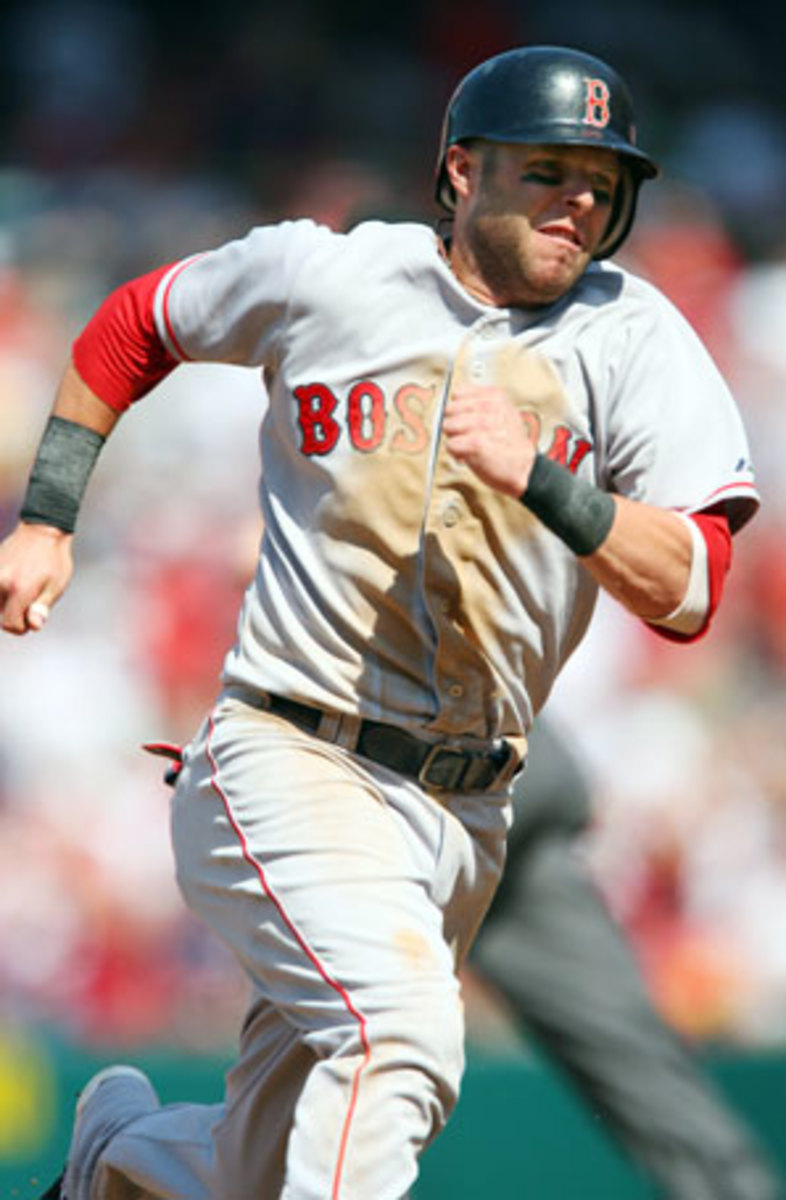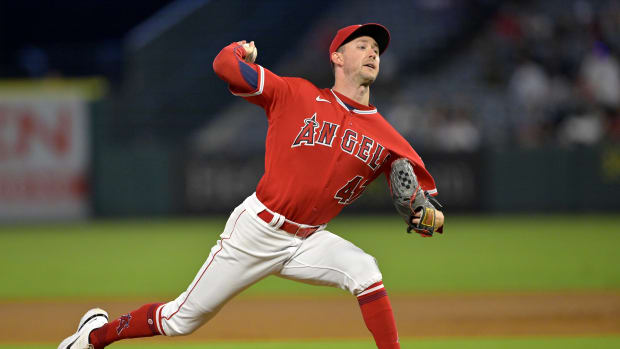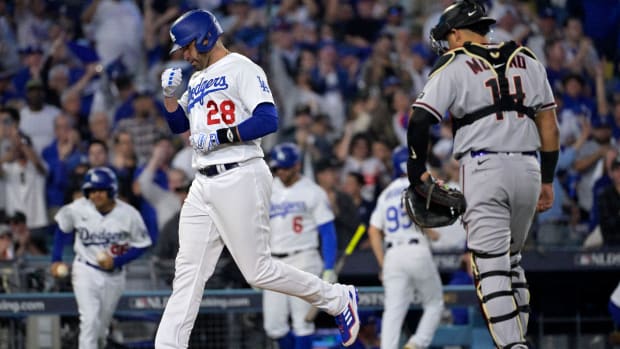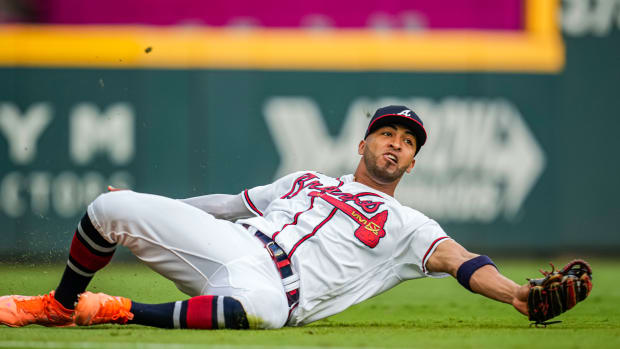
Unconventional Wisdom: Crowded AL MVP race had no favorite
Value is a subjective term to voters, who tend to emphasize offensive production as denoted by the traditional Triple Crown categories (batting average, home runs and RBIs). Fielding ability, if addressed at all, enters the argument via vague positional adjustment -- a shortstop need not lead the league in a Triple Crown category, for example. Voters tend to screen for players whose teams were in contention; since 1969 just three MVPs have come from sub-.500 teams, and in the AL only one out of the last 16 has come from a non-playoff team (Alex Rodriguez in 2003 for the last-place Texas Rangers). Narratives become attached to the statistics, with exceptionally strong clutch performances -- with runners in scoring position or late in the season -- informing the voting.
Statheads view player valuation more objectively. There's no shortage of metrics to quantify a player's offensive, defensive and/or pitching contributions in runs or wins relative to the league average or a theoretical replacement level, and the context of ballpark and league scoring environments can be incorporated. BP's preferred route is via Wins Above Replacement Player (WARP1), which enables measuring every player -- pitchers as well as hitters -- on the same scale.
WARP illustrates the disconnect between objective and subjective notions of MVPs. Since 2000 NL voters have made "correct" calls, according to WARP, in six out of nine years (Jeff Kent in 2000, Barry Bonds in 2001-2004, and Pujols this year). AL voters, on the other hand, have matched the winner to the WARP leader just twice in that span, via Rodriguez's 2005 and '07 wins.Justin Morneau, the 2006 winner, ranked 20th in the league (fourth on his team!) with 7.8 WARP, both lows among MVPs for the era.
Here's a thumbnail guide to the AL's top 10 finishers in WARP and their MVP cases, along with those of two popular lower-ranked candidates:
WARP: 10.4
Working For Him: Lee went 22-3 with a 2.54 ERA and ran away with the Cy Young Award, and he has the narrow WARP lead here.
Working Against Him: No pitcher has won the AL MVP since Dennis Eckersley in 1992, and no starting pitcher has done so since Roger Clemens in '86.
WARP: 10.3
Working For Him: The 38-year-old future Hall of Famer put together one of his best years, with a microscopic 1.40 ERA and an astounding 77/6 strikeout-to-walk ratio.
Working Against Him: Although three of the last four pitchers to win the MVP have been relievers (Eckersley, Willie Hernandez in 1984 and Rollie Fingers in '81), their teams all made the playoffs, while the Yankees did not. Also, Rivera's 39 saves look pedestrian next to Francisco Rodriguez's record-setting 62.
WARP: 9.8
Working For Him: In going 20-11 with a 2.78 ERA Halladay may have been even better than Lee, given the quality of competition.
Working Against Him: Lee's raw numbers, both traditional and sabermetric, outdo Halladay's, and the Cy Young voting suggests that argument is settled.
WARP: 9.8
Working For Him: In a year that saw the mid-season trade of Manny Ramirez and subpar performances from David Ortiz and Jason Varitek, Pedroia was the glue that held the AL wild-card-winning Red Sox's offense together. He hit .326/.376/.493 with 17 homers, led the league with 54 doubles and 213 hits, and played excellent defense.
Working Against Him: Teammate Kevin Youkilis could siphon votes away thanks to a higher OBP (.390) and SLG (.569).
WARP: 9.6
Working For Him: Mauer won his second batting title in three years (.328) and finished second in OBP (.413) while playing above-average defense (+10 FRAA, 36 percent caught stealing) and shepherding a relatively inexperienced and unheralded pitching staff all the way to a Game 163 play-in.
Working Against Him: He hit just nine homers and drove in 85 runs, numbers likely to hurt him despite his virtues.
WARP: 8.9
Working For Him: A-Rod led the league in SLG (.573) while finishing third in homers (35) and fifth in OBP (.392) and runs scored (104).
Working Against Him: The Yankees' failure to make the postseason aside, it was a down year for Rodriguez relative to his three previous MVP seasons, especially his 54-homer 2007. He missed 17 games due to a quad strain, and a .271 average with runners in scoring position stoked the notion that he was unclutch.
WARP: 8.6
Working For Him: Mussina bounced back from four rather ordinary seasons to win 20 games for the first time while finishing sixth with a 3.37 ERA.
Working Against Him: Two Yankees had higher WARPs in a year in which they missed the postseason for the first time since 1993.
WARP: 8.6
Working For Him: Morneau hit .300/.374/.499 and finished second in the league in RBIs with 129, one short of the total that propelled him to the 2006 award in spite of his weaknesses.
Working Against Him: Apart from his big counting stats, he wasn't as good as Mauer offensively or defensively.
WARP: 8.5
Working For Him: Danks enjoyed a breakout year, tossing 195 innings with a 3.32 ERA (fifth in the league) and pitching the White Sox into the postseason with eight innings of shutout ball in the play-in.
Working Against Him: Danks had just 12 wins, and the popular perception is that teammate Carlos Quentin (7.7 WARP) was more valuable before getting hurt.
WARP: 8.4
Working For Him: Youkilis helped pick up the slack in Boston's remade offense, leading the Sox with 29 home runs while hitting .312/.390/.569 and filling in for injured Mike Lowell at third base.
Working Against Him: While Youkilis had better rate stats than Pedroia, the latter had 105 more plate appearances and played the tougher defensive position.
WARP: 7.7
Working For Him: Quentin was leading the league in homers (36) and the White Sox in OBP (.394) and SLG (.571) when he broke his wrist on Sept. 1.
Working Against Him: Missing a month is generally fatal to a player's MVP case, and Quentin wound up ranked 27th in WARP. The Sox were tied with the Twins when he went down, and edged ahead via the play-in, so there's no "if only" counterargument to his absence.
WARP: 7.6
Working For Him: With 62 saves K-Rod demolished Bobby Thigpen's 1990 single-season record of 57. He did so while pitching for a team that finished the year with 100 wins, the AL's best record, and the largest Pythagorean overachievement of all time.
Working Against Him: None of his saves came in outings longer than one inning, and the Reliever Expected Wins Added (WXRL) metric, which is more sensitive to inning and score context than WARP (which ranked him 28th), shows him about half a win behind Rivera.
Pedroia won, and it was the right decision. Starting pitchers have a long history of being overlooked in the voting, and Pedroia, as the top-ranked hitter on a playoff team, thus had the edge as well as a nice little "stepping up" narrative that likely satisfied the storytelling set.


































